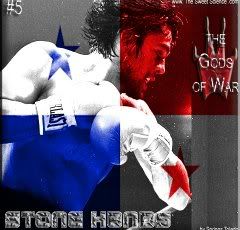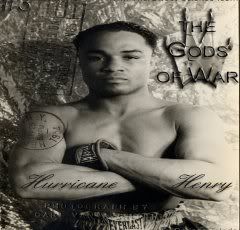Cont...
Late wars followed his ascension to the purple, including the street fight against Yvon Durelle and memorable campaigns in the heavyweight division against Rocky Marciano and Muhammad Ali. The names on Moore’s resume read like graffiti at the Roman Pantheon. One of those names was Jimmy Bivins whom he had beaten three times. When asked who was the greatest of the eleven world champions he faced, Bivins told The Ring, “the one guy who stands out –and he stands out in everyone’s mind –is Archie Moore. I thought he was the greatest fighter in the world. He could punch and he could box. But he could really punch. He wasn’t afraid of nobody.”
Archie came out of boxing’s golden era, when men fought more often for less money and the working conditions were more hazardous than they are today, to say the least. He managed to defeat world-class middleweights, light heavyweights, and heavyweights, though he was essentially only a natural middleweight with a paunch. He overcame six Hall of Famers. The record should read seven; a prime Willie Pastrano escaped with a hotly disputed draw after Archie chased him around the ring on forty-five year old legs. That was in 1962. Archie had his first professional fight in 1935.
Many civilians cannot understand why anyone would choose Archie’s profession for a living, and even fighters themselves would be hard-pressed to explain how a man could fight 220 times over twenty-eight years. Placing one’s health and wellbeing at such risk so often for so long seems to be utter folly, if not madness. Moore was an exception that proved the rule. He was the antique that out-performed newer models, a well-mannered eccentric who would show up at weigh-ins resplendent in a top hat and tuxedo, twirling a walking stick. At times he’d step onto the scale buck naked. And even had he been a bit mad, there was a touch of genius in it –the old man’s showmanship compounded the staggering skillfulness of his craft and boosted box-office receipts.
In the end, Archie Moore’s motivation was neither madness nor money.
It was love.
“Boxing is magnificent,” he told a journalist late in life, his eyes softening with affection. “It’s beautiful to know. Oh, the price can be very dear. You’ve got to marry it. And so I did. Boxing was my lover. It was my lady.”
 |
|

 Thanks:
Thanks:  Likes:
Likes:  Dislikes:
Dislikes: 




 Reply With Quote
Reply With Quote



Bookmarks